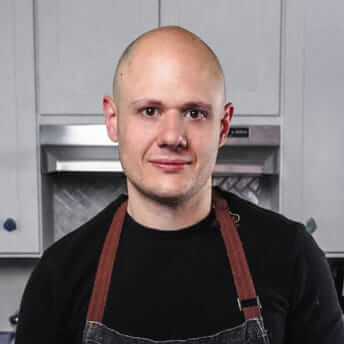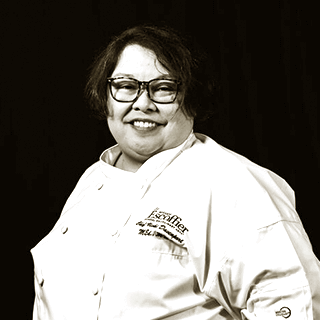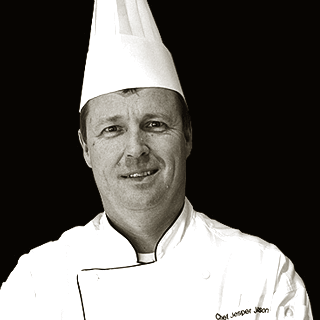Listen to This Article:
The variety of unique roles and positions in the culinary industry would be hard to overstate. From restaurant chefs to chef consultants, food truck operators to caterers, bakers to food influencers, there are seemingly endless careers in foodservice that you can pursue.
While nearly all culinary careers require passion and culinary know-how, some culinary paths have significantly higher earning potential than others. In particular, working independently (like consulting and private cheffing), in management, or in product development, can be quite lucrative.
Whether you dream of leading a kitchen or starting a non-traditional culinary business, here are eight of the potentially highest-paying culinary jobs out there, ranked in order of average salary.
*The salaries below may vary depending on several factors, including experience, location, education level, marketing trend and company sizes. The salaries are current as of June 1, 2025, and numbers are updated regularly.
1. Executive Chef
Average Salary: $100,598
Salary Range: $87,791-$115,571
What Does an Executive Chef Do?
The executive chef is the leader of the kitchen team. They are responsible for creating the menu and ensuring that the cooks are properly trained on its execution. They have to carefully manage food costs and labor expenses, and make sure that the kitchen is operating profitably.
They also have to hire their staff, manage inventory, and keep the kitchen running smoothly—or properly delegate these tasks to others.
Skills and Experience
Cooking proficiency is an important part of the executive chef’s job, but it’s not the only part. The chef has to know their business inside and out, including how to manage people, costs, and inventory.
Executive chefs usually have several years of experience in the industry. Those who have this culinary job as their goal may be able to speed up the process by getting their culinary education.
While earning their culinary arts degree, students may study the cooking basics, but they may also be exposed to restaurant operations and hierarchy, accounting concepts, pricing and cost control, and many of the other skills that are key to being a successful executive chef.
*Information may not reflect every student’s experience. Results and outcomes may be based on several factors, such as geographical region or previous experience.
2. Research and Development (R&D) Chef
Average Salary: $85,748
Salary Range: $62,007 – $114,201
What Does an R&D Chef Do?
A research and development chef is a professional who blends culinary knowledge and food science to test and develop new food products. They often work alongside other professionals, like marketers and food scientists, in test kitchens. R&D chefs balance creativity with practicality, ensuring their recipes can be reproduced consistently and efficiently at scale.
Some R&D chefs work in the high-end restaurant industry—where they may work to update menus to reflect food service trends—whereas others focus on perfecting manufacturable products for large-scale production.
Skills and Experience
A research and development chef must possess expert-level culinary skills for this position, which often requires a formal culinary education to get started. Along with culinary expertise, R&D chefs need a deep knowledge of underlying food science, knowing how to safely preserve foods or maintain the desired texture of shelf-stable items, along with the principles of food safety and regulation.
Oftentimes, R&D chefs enter the field after working as an executive chef, and they’re more likely to land a job if they have test kitchen experience, a background in food science and research, or a relevant certificate, like those offered by the Research Chefs Association.
3. Private Chef
Average Salary: $93,587
Salary Range: $70,825 – $120,197
What Does a Private Chef Do?
A private chef cooks in-house for their client(s).
They typically work exclusively for one person or one family, usually as a full-time employee. They may even live on-premise, so they’ll be available to provide three meals per day, plus snacks.
By working as a private chef, you’ll become well acquainted with what your clients like and dislike, as well as any allergies or dietary restrictions. Though it’s still a demanding job, working as an employee for a single client or household may be less stressful than working in a commercial kitchen.

Just because they work in clients’ homes doesn’t mean the expectations are lower. Private chefs may need to produce 3+ polished dishes per day.
Skills and Experience
Private chefs can be paid a high salary for the luxury service they provide, and with that comes high expectations.
Private chefs must know a wide variety of cooking techniques in order to keep the menu varied and interesting for their clients. But they have to remember that their responsibility is to make what the client likes, not to rely on their own favorite recipes. Private chefs often excel in making ingredient substitutions to meet dietary preferences and accommodate food allergies.
A degree or diploma in culinary arts can lay a strong foundation for a career as a private chef. Beyond honing culinary techniques, formal training can enhance credibility, build essential business skills, and can open doors to valuable networking opportunities.
*Information may not reflect every student’s experience. Results and outcomes may be based on several factors, such as geographical region or previous experience.
4. Chef Consultant
Average Salary: $88,700
Salary Range: $67,126 – $113,920
What Does a Chef Consultant Do?
A chef consultant doesn’t work in just one restaurant, rather they work on short-term contracts with many restaurants and other food service businesses. They may be consulted to develop menu items and strategy, provide staff training, improve kitchen efficiency, address specific challenges, or develop scalable product lines.
Skills and Experience
To become a chef consultant, you’ll typically need extensive experience in successful professional kitchens. These consultants rely on a strong culinary foundation, a stellar reputation in the industry, and deep knowledge of business skills. Oftentimes, these contracted experts are good at thinking outside the box, spotting inefficiencies, and crafting innovative solutions that in-house teams may have overlooked.
This is not an entry-level position. Typically, chef consultants get into consulting work after working in executive chef and management roles for years.
*Information may not reflect every student’s experience. Results and outcomes may be based on several factors, such as geographical region or previous experience.
5. Food Service Manager
Average Salary: $65,310
Salary Range: $42,380 – $105,420
What Does a Food Service Manager Do?
Food service managers provide leadership and guidance in restaurants, hotels, resorts, and other large food operations. This role could also go by the job titles “Food & Beverage Director,” “Restaurant Manager,” or “General Manager.”
This is a supervisory role that ensures the smooth functions of an overall food operation. Responsibilities may include hiring and firing, implementing systems for better efficiency and customer service, and improving profitability.

A great dining experience starts with a food service manager who keeps kitchen operations running like a well-oiled machine.
Skills and Experience
This is a role for experienced hospitality and restaurant professionals. It may take years to work your way up to this type of managerial position, with most candidates starting in entry-level roles, like line cooks, before becoming food service supervisors and eventually managers.
Though it is not strictly required, an education in Hospitality & Restaurant Operations Management may help you to reach this level faster. This Auguste Escoffier School of Culinary Arts’ online associate degree program includes coursework in Leadership and Development, so you can be prepared to coach and guide future employees. You may also study topics like cost control and purchasing to help manage the business’s expenses.
Plus, you’ll get practical education in catering, event operations, and beverage service operations to explore regulations, budgeting, and customer service.
*Information may not reflect every student’s experience. Results and outcomes may be based on several factors, such as geographical region or previous experience.
6. Food Stylist
Average Salary: $78,672
Salary Range: $62,744 – $98,505
What Does a Food Stylist Do?
A food stylist is a professional who’s an expert in styling food in a way that looks appealing for television, film, and photography. They prepare and garnish dishes for media projects, often using creative tools, techniques, and props to ensure food products look appetizing and visually interesting, even after sitting out for hours.
They may work in cookbook development, commercial campaigns, editorial photography, television, and other media. They work closely with chefs and food photographers, bringing memories, like summer barbeques or a holiday feast with loved ones, to life.
Skills and Experience
These creative professionals usually possess a strong culinary background, often attending culinary school and/or working in the restaurant industry. In many cases, they also have a passion for, or formal education in, photography and visual arts.
Most food stylists begin as assistants or apprentices, where they spend several years learning trade secrets and honing their techniques. Over time, they build industry connections that can help them land work on cookbooks, television shows, magazines, and more.
*Information may not reflect every student’s experience. Results and outcomes may be based on several factors, such as geographical region or previous experience.
7. Sous Chef
Average Salary: $53,279
Salary Range: $39,866 – $70,124
What Does a Sous Chef Do?
The sous chef is the executive chef’s top lieutenant. They help lighten the load. Responsibilities could include training new staff, managing the schedule, supervising the line during service, or creating the prep crew’s task list. It can also include ordering and inventory, as well as coming up with specials.
It’s a position with a lot of responsibility, which is why this position receives the second-highest culinary salary in the restaurant kitchen.
Skills and Experience
A sous chef usually progresses through the ranks over several years before they reach this level. But once they’re here, they’re within closer reach of becoming an executive chef, if that’s their goal.
Aspiring sous chefs can benefit from a culinary arts education where they can build good habits like proper knife skills, cooking methods, and sanitation. They may also explore the business side of the kitchen, including management skills like training and motivating employees. This education can be helpful as a sous chef—and later as an executive chef.
*Information may not reflect every student’s experience. Results and outcomes may be based on several factors, such as geographical region or previous experience.
8. Personal Chef
Average Salary: $62,045
Salary Range: $39,661 – $80,747
What Does a Personal Chef Do?
Unlike a private chef that works for just one or a few clients, a personal chef makes meals for a larger roster. They often make batches of meals in bulk, which they can portion out and deliver to their clients for reheating.
This type of service is less personal than a private chef, but it can still be niche. For example, a personal chef could specialize in making gluten-free meals, plant-based meals, or high-protein meals to help clients manage their nutrition.

Personal chefs typically provide clients with convenient, prepared meals.
Skills and Experience
Personal chefs may work for a larger company, or they can start their own company like Escoffier graduate Shane Witters Hicks, who makes both plant-based and non-vegetarian meals for his clients. This can be an exciting route to culinary entrepreneurship.
There is no single experience level that personal chefs must reach before they can cook for others. But they must have strong sanitation skills to ensure the food they make for their clients is safe. They must also be able to make delicious food in large batches if they’re going to be feeding a number of clients. And they have to carefully manage their food costs to make sure they’re making a profit. These are the types of skills that may be offered in Escoffier’s culinary arts programs.
One key to success in personal cheffing can be to effectively market your business and stand out from the competition. One strategy is to find a niche that aligns with your skills and passions. For example, you may want to attend a plant-based culinary program and focus your offerings on plant-based meal plans.
*Information may not reflect every student’s experience. Results and outcomes may be based on several factors, such as geographical region or previous experience.
First Comes Passion, Then Comes Income
Culinary salaries can range wildly based on position, education, experience, and market. Those who are newer to the industry and have less experience may have lower earning potential at first. But for those who work hard and commit themselves to a lifetime of learning, it can be a lucrative field with many rewards—both monetary and personal.
Culinary school can be the perfect place to start that educational journey. So if one of these careers sounds exciting, contact us and let’s put a plan together to help get you started.
FIND OUT MORE ABOUT CULINARY AND PASTRY CAREERS WITH THESE RESOURCES:
- How to Become a Food Influencer
- Top Remote Culinary Jobs: A Brief Guide
- The Essential Guide to Careers in Foodservice
This article was originally published on July 7, 2021, and has since been updated.








